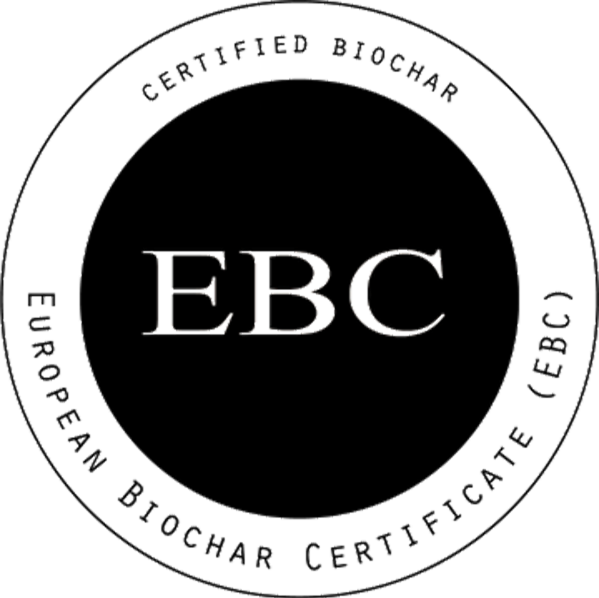Carbon-storing prefabricated concrete walls in Bavaria
Utilization of 5.3 tonnes of eLM Zero in precast concrete walls
Individual approval (ZiE) for practical application
Date: Summer 2025
Location: Kemnath, Bavaria, Germany
In an innovative project, construction company MARKGRAF used ecoLocked Materials to demonstrate how sequestered carbon from local biomass residues can be permanently stored in concrete, proving the technical feasibility and economic viability of this approach for large projects.
For MARKGRAF’s new training and education center, scheduled for completion in fall 2026 with approximately 2,500 m² gross floor area, the in-house precast plant developed innovative concrete elements incorporating ecoLocked Materials. The project team worked intensively on integrating the material and successfully demonstrated its technical feasibility through an individual approval (ZiE).
The use of eLM shows great potential, especially in precast concrete, as it positively influences early strength development in addition to CO₂ storage. In the non-load-bearing precast partition walls, 90 kg of eLM per cubic meter of concrete were used. In total, around 5,300 kg of ecoLocked Materials were applied. This enabled the permanent removal of over 10.68 tonnes of CO₂ from the atmosphere and reduced the carbon footprint of the affected components by more than 60 percent.
This pilot project impressively demonstrates that sustainable building with concrete is already possible today. It highlights the potential that arises when German engineering expertise is combined with innovative CO₂-negative materials.
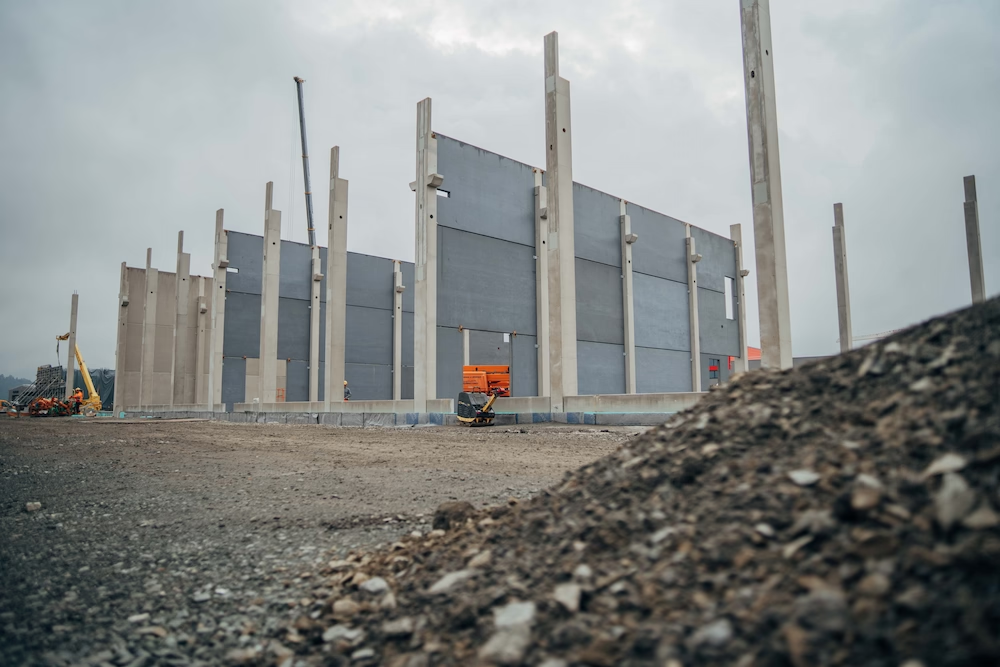
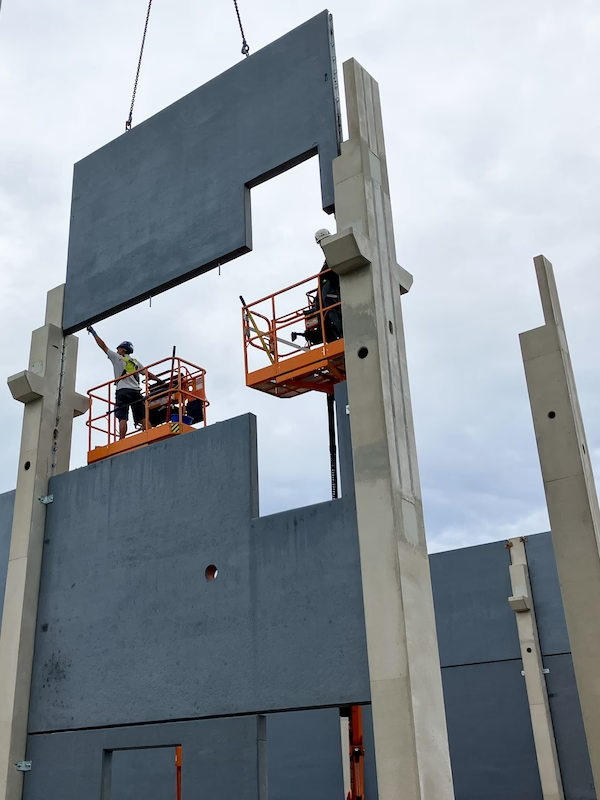
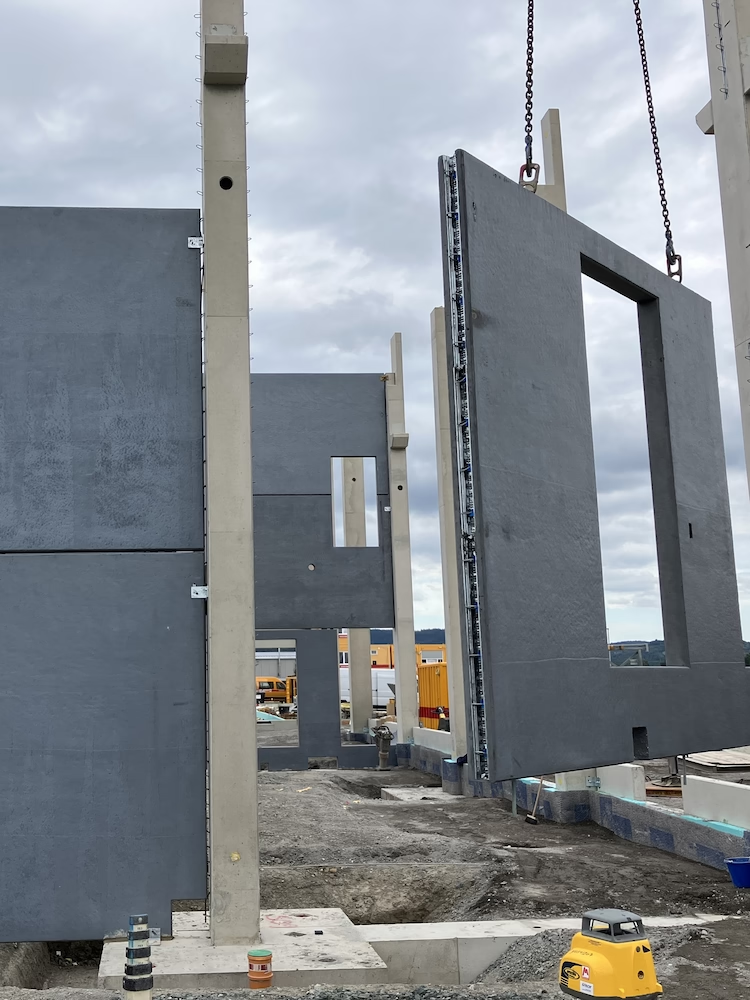
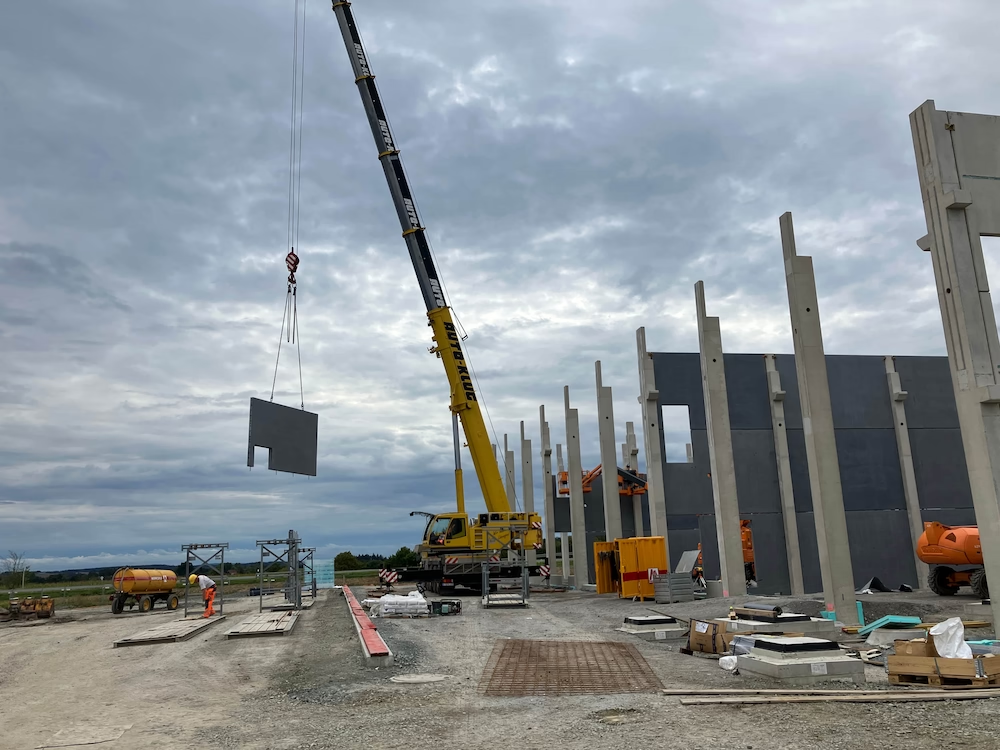

.svg.png)
